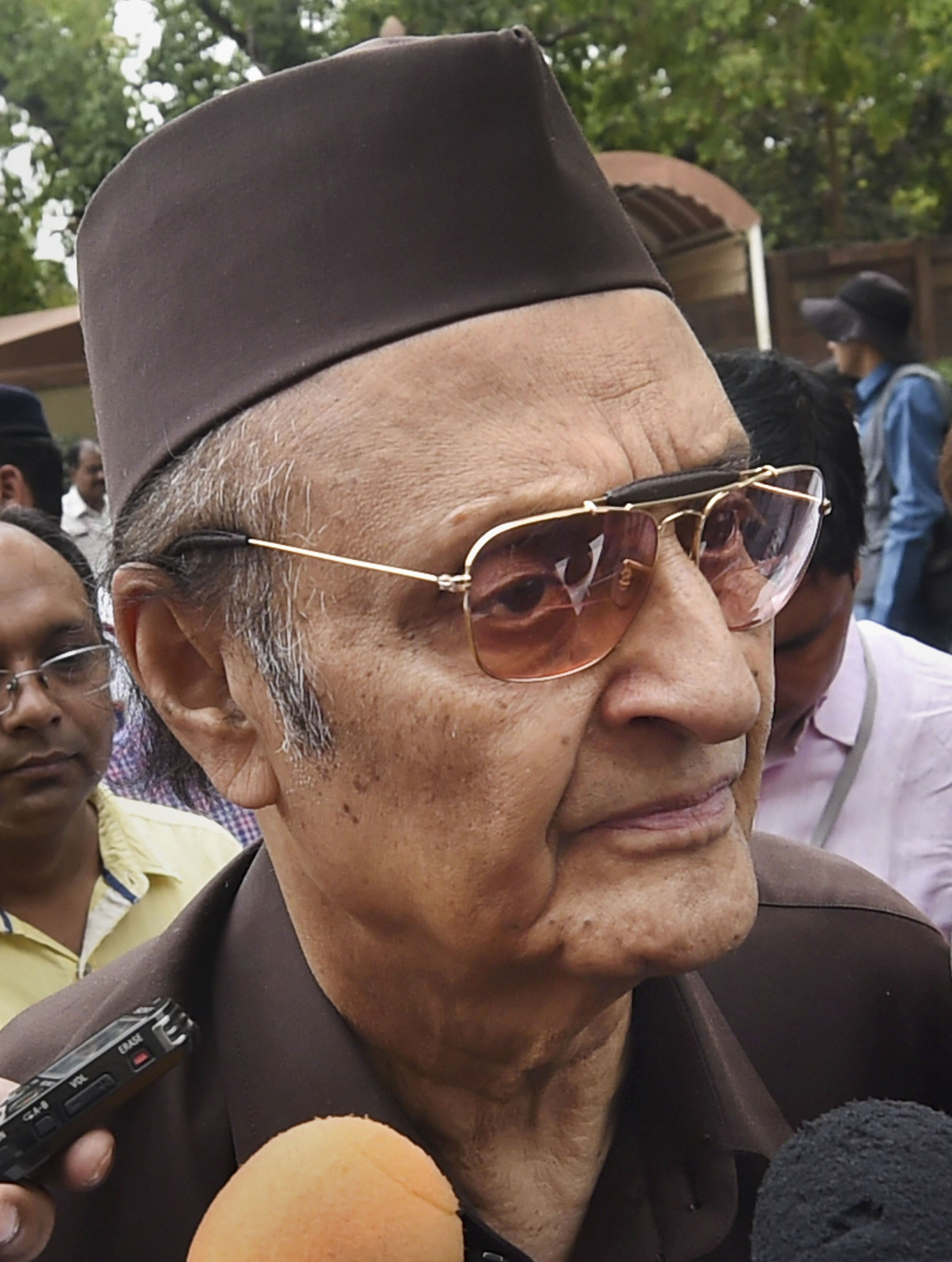Karan Singh, the last head of state of Jammu and Kashmir, today said he did not agree with the 'blanket condemnation' of the government's twin moves of removing special privileges given to the state and its bifurcation into two Union territories.
'I personally do not agree with a blanket condemnation of these developments. There are several positive points,' Singh said in a written statement released in New Delhi.
'Ladakh's emergence as UT is to be welcomed.... The gender discrimination in Article 35 A needed to be addressed as also the long awaited enfranchisement of West Pakistan refugees and reservation for Scheduled Tribes will be welcomed,' the son of the late Maharaja Hari Singh, who acceded Jammu and Kashmir to India, said.
One interpretation of Article 35A is that women who marry 'non-permanent residents' of Jammu and Kashmir lose their rights and privileges. The Article acted as a protector of sorts for permanent residents as it allowed only them to own property.
Singh,who is senior Congress leader, also welcomed the possibility of fresh delimitation after the bifurcation of the state into Union territories, saying this would 'ensure fair division of political power'
Singh's statement, it would seem, differs from the resolution of the Congress Working Committee that said: 'The CWC deplores the unilateral, brazen and totally undemocratic manner in which Article 370 of the Constitution was abrogated and the State of Jammu and Kashmir was dismembered by misinterpreting the provisions of the Constitution. Every principle of constitutional law, state’s rights, parliamentary procedure and democratic governance was violated.'
The CWC criticised the scrapping of special powers in Jammu and Kashmir, the bifurcation as well as the way the twin moves were implemented by bringing the state under lockdown and locking up its mainstream leaders. Singh's only objection was the lack of dialogue between Delhi and the political parties in Kashmir and the detention of its leaders. 'I feel it is important for the political dialogue to continue. It is unfair to dismiss the two main regional parties as being anti-national. I would urge that leaders of legitimate political parties in Kashmir be released and a broad-based political dialogue initiated with them,' he said.
In earlier statements, in the Rajya Sabha and media interviews, Singh had supported the need for special powers under Article 370 in the state. LIke many Congress leaders who spoke out against the government's move, Singh had highlighted in a 2014 TV interview that similar special powers are granted to people in some other parts of the country, but Kashmir and Article 370 are always highlighted because of politics. “There are special provisions for tribal areas and all sorts of other areas. It’s only because Jammu and Kashmir is highly politicised that people think that Article 370 is some kind of a burden being placed upon the rest of the country. It’s not so,” Singh told interviewer Karan Thapar during the interview to Headlines Today in 2014.
In August 2016, during a Rajya Sabha debate, he spoke about the uncertainty around the exact status of the relationship of Jammu and Kashmir with India. He was speaking about the unrest in the Valley after the killing of Burhan Wani, the commander of the Hizbul Mujahideen. More than 100 civilians were killed then. “It is an integral part of India, no doubt about that. But what exactly the relationship will be? In many federal countries, it varies,” said Singh. “Even China has one state, two systems. For Hong Kong, they have a different system. So, integral part doesn’t necessarily mean that it will be exactly the same as anything else.” Here, too, he batted for special powers to the state.
In April 2019, Singh was quoted by The Tribune newspaper as saying that the special status to Jammu and Kashmir wasn’t a demand of the state. “It is not that we said that we are a Muslim majority state, that’s why we should get special status. The fact is that the special position was offered by the Government of India. Don’t forget that,” Singh said.
But Singh seems to have rethought his position before today's statement.










